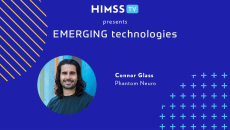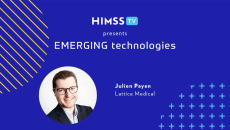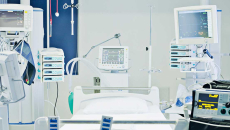Medical Devices
The Health Data Hub's Pauline Cohen explains that the SHAIPED project will assist AI-enabled medical device manufacturers in obtaining health data for model training while maintaining regulatory compliance.
Part of cybersecurity project ENTRUST's work will be open source so that at its conclusion its framework and assessments could possibly be integrated into the larger healthcare ecosystem, says Thanos Arvanitidis, the project's innovation project manager.
The technology records electrical activity from a person's body, decodes it and uses it to enable them to control a robotic prosthetic limb using their mind. The company's founder and CEO Connor Glass explains.
Mattice is a 3D-printed scaffold, a resorbable breast implant designed for regrowing one's own breast tissue. Julien Payen, CEO and cofounder of Lattice Medical, maker of Mattice, offers technological insights.
Homeland Security is calling for vigilance against state-sponsored CyberAv3ngers and other pro-Iranian hacktivists, who have a history of attacking operational control and IoT systems to steal access and control devices.
With only six months left, Martin Gilje Jaatun, senior scientist at SINTEF Digital, says the NEMECYS project's final goal is to engage stakeholders, address industry concerns and enhance global medical device cybersecurity.
New research shows that 75% of healthcare leaders increased their device and security budgets over the last 12 months, and they're willing to shell out for advanced protection or built-in exploit prevention.
Red Cell Partners will provide artificial intelligence products for rapid real-world testing by the university's Health AI Assurance Laboratory. UMass will also provide data for assurance testing and receive fee-based reimbursement for the lab's services.
Anne Osdoit, CEO of Moon Surgical, discusses the company’s Maestro surgical robotics system and how it supports surgeons during soft tissue procedures.
Maestro is designed for laparoscopic soft-tissue procedures, providing surgeons with an extra set of hands so they can focus more fully on the operation itself. Moon Surgical CEO Anne Osdoit explains more.









